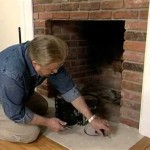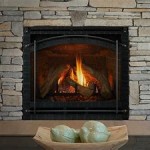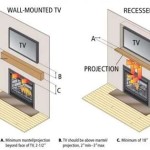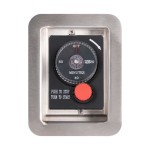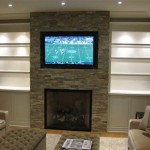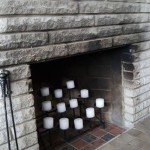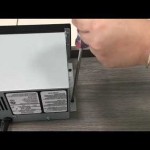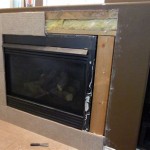Mortar Mix for Fireplace Bricks: A Guide to Choosing the Right Material
Constructing a fireplace is a significant undertaking that necessitates careful consideration of every element, including the mortar that binds the bricks together. The mortar mix plays a crucial role in the fireplace's structural integrity, heat resistance, and aesthetic appeal. Choosing the appropriate mortar mix is essential to ensure the longevity and safety of your fireplace. This article will explore the properties of mortar mix for fireplace bricks, the different types available, and factors to consider when selecting the right option for your project.
Understanding Mortar Mix Components
Mortar mix is typically composed of a combination of cement, sand, and water. These components work together to create a paste-like consistency that, when applied between bricks, hardens to create a strong bond. The proportions of each ingredient influence the mortar's properties, such as its strength, workability, and heat resistance. In addition to these basic components, specialized additives may be incorporated into the mix to enhance specific characteristics.
Cement acts as the binding agent, providing strength and durability to the mortar. Sand provides bulk and helps to control the consistency of the mortar, making it workable and easy to apply. Water is essential for hydration, allowing the cement to undergo a chemical reaction that leads to hardening. Additives, such as lime, can be incorporated to improve workability and reduce shrinkage.
Types of Mortar Mix for Fireplace Bricks
Different types of mortar mix are available, each designed for specific applications and intended to meet varying requirements. These types are classified by their compressive strength and fire-resistant properties. Common types of mortar mix for fireplaces include:
- Type N Mortar: This is a general-purpose mortar suitable for many masonry applications, including fireplaces. It offers a modest compressive strength and is relatively easy to work with. However, its fire resistance may not be sufficient for high-heat applications.
- Type S Mortar: This type is designed for greater strength and is often used for load-bearing walls and other structural elements. It provides enhanced compressive strength compared to Type N mortar. However, it may be less workable, making application more challenging.
- Type O Mortar: This is a low-strength mortar commonly used for non-structural applications. It is highly workable and often preferred for brick veneer and decorative work. However, it is not recommended for fireplaces due to its low strength and fire resistance.
- Type M Mortar: This is a high-strength mortar often used for foundations, retaining walls, and other applications requiring superior load-bearing capacity. It offers excellent compressive strength but is more difficult to work with.
- Fire Clay Mortar: This specialized mortar is specifically designed for use in high-temperature environments, such as fireplaces and wood-burning stoves. It contains fire clay, which provides excellent heat resistance and prevents cracking or spalling at high temperatures.
Factors to Consider When Choosing Mortar Mix
Choosing the right mortar mix for your fireplace is essential to ensure its structural integrity, longevity, and safety. Several factors should be considered when making this decision:
1. Heat Resistance
Fireplaces generate significant heat, and the mortar mix must be able to withstand these high temperatures without cracking, spalling, or losing its strength. Fire clay mortar is specifically designed for high-heat applications and is recommended for fireplaces.
2. Compressive Strength
The mortar mix must possess sufficient compressive strength to withstand the weight of the bricks and any other structural loads. Type N mortar is typically sufficient for most fireplaces, but for larger or more complex structures, a higher strength mortar, such as Type S or Type M, may be required.
3. Workability
The mortar mix should be workable, allowing for easy application and spreading between the bricks. Too stiff a mix can be difficult to apply, while too thin a mix may not provide sufficient bond strength. The consistency of the mortar mix can be adjusted by adding more water or sand.
4. Compatibility with Bricks
The mortar mix should be compatible with the type of brick being used. Certain mortar types may react differently with specific brick materials, affecting the bond strength and long-term performance. Consult a masonry professional for guidance on the appropriate mortar mix for your project.
Choosing the right mortar mix for your fireplace is a critical step in ensuring its safety, longevity, and aesthetic appeal. By considering the factors discussed above, you can make an informed decision and select a mortar mix that meets the specific requirements of your project.

How To Diy Mortar A Brick Fireplace Makeover Iekel Road Home

Mortar Wash Brick Fireplace Makeover Dimples And Tangles

Mortar Wash Brick Fireplace Makeover Dimples And Tangles

Sakrete 50 Lb Mortar Mix In The Concrete Cement Stucco Mixes Department At Com

Mortar Wash Brick Fireplace Makeover Dimples And Tangles

Mortar Wash Brick Fireplace Makeover Dimples And Tangles

Mortar Wash Brick Fireplace Makeover Dimples And Tangles

How To Diy Mortar A Brick Fireplace Makeover Iekel Road Home

How To Over Grout Your Fireplace House Homemade

How To Mix Fireplace Mortar Doityourself Com
Related Posts

